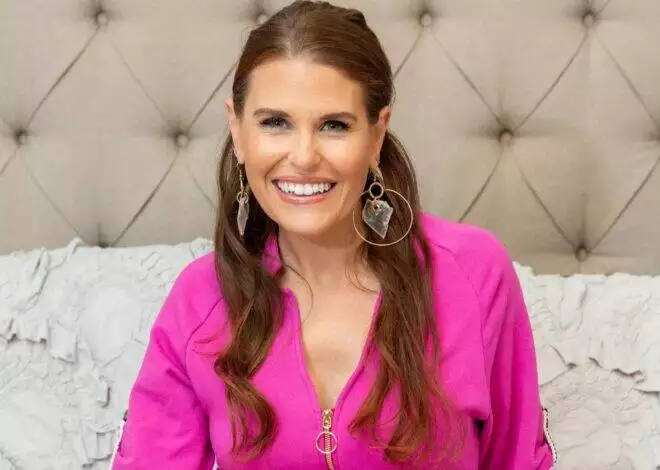 “Mom always liked you best,” Tommy Smothers used to jokingly complain to his brother Dick on their hit 1960s TV series, “The Smothers Brothers.”
“Mom always liked you best,” Tommy Smothers used to jokingly complain to his brother Dick on their hit 1960s TV series, “The Smothers Brothers.”
It seems funny – until you realize that a lot of moms actually do prefer one child to the other. And that has lifelong ramifications.
The pot was stirred recently by a Babble.com blog written by Kate Tietje, a pregnant stay-at-home mom of two toddlers, provocative titled, “Mom Confession: I Think I Love My Son a Little Bit More.” Tietje says:
“(I)n the day-to-day life, I find it easier to gravitate towards my son. I’m more patient with him. I’m less likely to get angry with him (though I do, if he does something he shouldn’t). I’m more likely to pick him up and snuggle him, or to get something he asks for quickly. I’m less patient with my daughter, more likely to fight with her or refuse to get her something for no good reason (which she doesn’t make any easier by literally asking non-stop until I say “Enough! The answer is no!”). These are really on my worst days though … on my better days, my normal days, I make more effort to try to be fair to both.”
As one might expect in this era of anxious and judgmental parenting, Tietje got a lot of heat for her confession, so much so that she followed up with another post, “I’m Not a Perfect Mother” – which brought her almost as much flack.
It’s impossible to be perfect, but you can’t be imperfect or honest about it, either, nowadays.
Like it or not, Tietje isn’t alone. There are a lot of mothers who favor one child over the other, or so Karl Pillemer, a gerontologist at Cornell University, discovered when he looked into family favoritism.
“Most mothers have very distinct preferences. There’s one to whom they feel most emotionally close, one with whom they have the most conflict. Parental favoritism is a fundamental part of the family landscape throughout life,” said Pillemer, who interviewed a few hundred moms in the Boston area.
And that means Tietje’s children and anyone else who has felt the sting of a parent’s criticism while watching that same parent dote over a sibling will likely suffer from those feelings throughout their lives, whether they were the “chosen” child or not. We may not all suffer the fate of Cleopatra’s siblings – as her father’s favorite child, Cleopatra was responsible for the death of at least two of them – but the pain can come close. And that has been the biggest shocker for me ever since my mother became ill and passed away a few months ago, and old childhood hurts and perceived inequities resurfaced for my older sister.
I wouldn’t say I was the “chosen” child, but I was not as combative as my sister was while growing up. Of course, being the younger child offers you a distinct advantage; it was very easy to watch what punishment came when she got in our parents’ face and say to myself, “Whoa – I’m not going there!” I certainly had my share of arguments with my parents over the years. But as I became an adult, married, had children and divorced, I gained a greater understanding of the sacrifices and compromises – and joys- that come with marriage and parenting. That allowed me to have empathy, compassion and forgiveness for my parents, and to get closer to them, especially my mother. And that is something my sister, an unpartnered, never-married, middle-aged and currently unemployed woman, has not been able to experience.
And so I have borne the brunt of my sister’s conflicted emotions, resentment and anger. Because she is unwilling to try to repair those hurts with me in counseling, I have not only lost a mother, but I also have lost a sister while also losing our nursing home-bound father to dementia and Parkinson’s. It’s been incredibly sad. And, unfortunately, not that uncommon, according to Scott Myers, a professor of communication studies at West Virginia University. Meyers’ research indicates that we tend to be much more verbally aggressive with our siblings than with anyone else.
That’s why Cathy Jo Cress, who writes the “Mom Loves You Best” blog for Psychology Today and recently co-wrote (with her daughter, Kali Cress Peterson) “Mom Loves You Best: Forgiving and Forging Sibling Relationships” urges middle-aged siblings to come together for each other and for their aging parents. “Time is running out on the midlife family stage,” she says. “Forgiveness and reconnection have only so much time.”
All this has made be much more aware of how my two boys, 17 and 20, are perceiving their relationship each other and with me. I am loath to think that, 30 years from now, they’ll be struggling in the same way my sister and I are. Like Tietje, I am not a perfect mother and yes, there are times when I’ve been closer to one child than the other even though I love each of them madly, am incredibly proud of their unique personalities and accomplishments, and can’t imagine a life without either of them.
The sad thing is, no matter what I do or don’t do, one of them may feel somewhere down the road that, “Mom always liked you best.” I can only hope they can laugh about it together as Tommy and Dick did.





